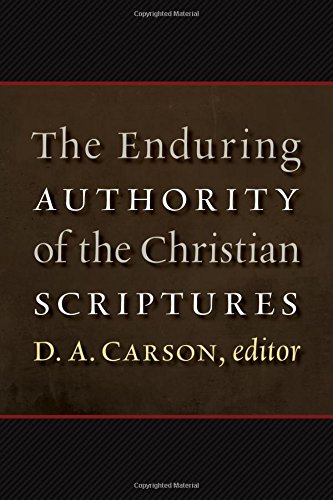A Brief Book Summary from Books At a Glance
Editor’s Note: Today we continue our series of “bonus” summaries covering all thirty-six chapters of the monumental volume, The Enduring Authority of the Christian Scriptures (D.A. Carson, ed.).
Chapter 2 :“The Truth Above All Demonstration”: Scripture in the Patristic Period to Augustine
Charles E. Hill
(Summarized by Mark Coppenger)
In the title, Hill quotes Justin Martyr (Dialogue with Trypho) on the self-authenticating nature of God’s revelation. Such was the basis for the canon, which the Church Fathers well understood. Though the ancient physician, Galen, among others, pressed the church for proofs of the reliability of Scripture, Clement of Alexandria took a lead in insisting that no premises could have higher status than the plain assertions of the Bible, which were, to borrow Alvin Plantinga’s contemporary terminology, “properly basic.” In this vein, Origen and Eusebius, by quoting 1 Corinthians 2:4, pointed to the “Spirit and power” of the gospel, and to Paul’s indifference to “persuasive words” (This is not to say the faith is anti-intellectual, but that it does not depend on the assent of intellectuals); Origen spoke of the musical “harmony” of the gospels, drawing on the imagery of David’s harp; Eusebius objected to Origen’s tendency to over-allegorize in order to “cover” what he took to be historical irregularities; Augustine refused to lay the blame on scripture for. . .
[To continue reading this summary, please see below....]The remainder of this article is premium content. Become a member to continue reading.
Already have an account? Sign In
